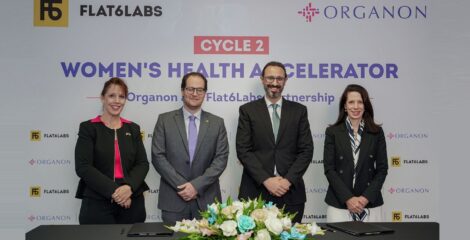Pawame, a UAE-based off-grid solar start-up, has announced that it has successfully secured $1.7 million in grant commitments, plus $750,000 in equity including $250,000 from Launch Africa. The company has also announced that it is now launching its $5 million Series A funding round to further boost its growth and expansion into Africa to further empower individuals to create a future for themselves that is brighter than they could have imagined.
Pawame offers a portfolio of innovative, high-quality solar home systems in remote areas of Kenya on a micro-financed basis, using mobile money repayment, making it affordable for everyone to access safe, clean and reliable energy. The business model also uses energy as a bridge to help families build a credit history and then gain access to other life-changing products through Pawame, products that they would otherwise be unable to access or afford.
Alexandre Allegue, Chairman and Co-Founder of Pawame commented, “I am extremely proud of this announcement, as despite facing challenges during the pandemic, Pawame delivered exceptional results in 2020, including achieving bottom-line profitability and positive cash flow for the first time. We accomplished this thanks to our unique and sustainable value proposition, alongside a cost-effective execution and an exceptional team.”
Grants and funding were received from all over the world. The SDG7 Results Grant was received from the Netherlands Enterprise Agency, and it will significantly accelerate and de-risk Pawame’s geographic expansion within Kenya. The Energy and Environment Partnership (EEP) grant will help accelerate the company’s product development pipeline, funding pilots for new products like solar water pumps and solar refrigerators. The Market Based Energy Access II grant (MBEA-II), from Dutch development organization SNV, will fund market activation initiatives in Kakuma and Kalobeyei refugee camps. Additional grants were secured from AECF REACT Kenya and the flagship World Bank-funded Kenya Off-Grid Solar Access Project (KOSAP), as well as $750,000 in equity including $250,000 from Launch Africa.
With a team of 80 employees and over 200 contract agents and technicians, Pawame plans to electrify over one million people in sub-Saharan Africa that do not have access to grid power by 2025. The start-up is also planning to extend its product range to other life enhancing products, including income generating appliances such as water tanks, solar water pumps and solar refrigerators. These will empower many families in rural areas to start their own business, and enable farmers to extend the life of their crops.
Maurice Parets, CEO of Pawame, said, “Energy is just the beginning, supplanting dirty kerosene lamps, our solar products help protect as well as change the lives of off-grid families. The funds from our Series A equity round will allow us to accelerate our growth by delivering a broader array of life-changing products to more families in more of Kenya and, eventually, to other parts of Africa.”
Pawame is on target for its geographic expansion within and beyond Kenya, with the Series A fund raising set to further accelerate its growth trajectory. Its current investors are primarily GCC based, with its largest shareholder being senior executives from the largest power utility companies of the Middle East as well as Launch Africa VC.
Baljinder Sharma, Director at Launch Africa Ventures, commented, “Our thesis for investing into Pawame is simple: without electricity or connectivity, individuals are excluded from the exponential growth that an increasingly digital world has to offer. Although Pawame’s products essentially offer off-grid hardware with an affordable pay-as-you-go model, their value offering is far beyond simply electricity – which will be a defining factor for the company as they bring economic growth to a historically excluded set of people.”
If you see something out of place or would like to contribute to this story, check out our Ethics and Policy section.














